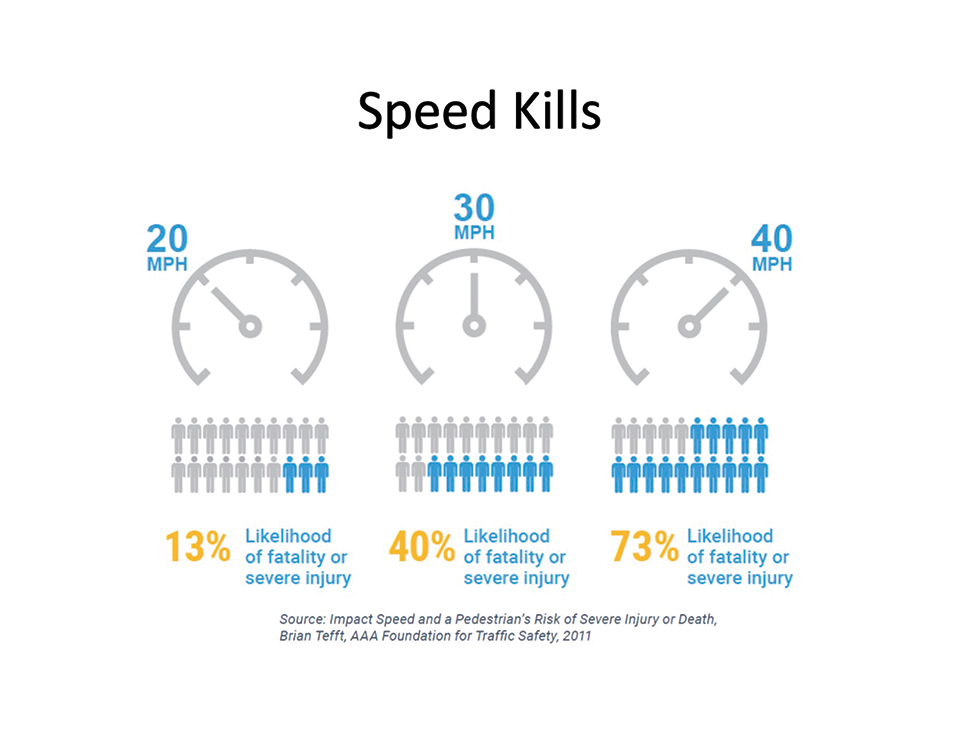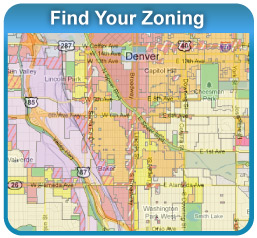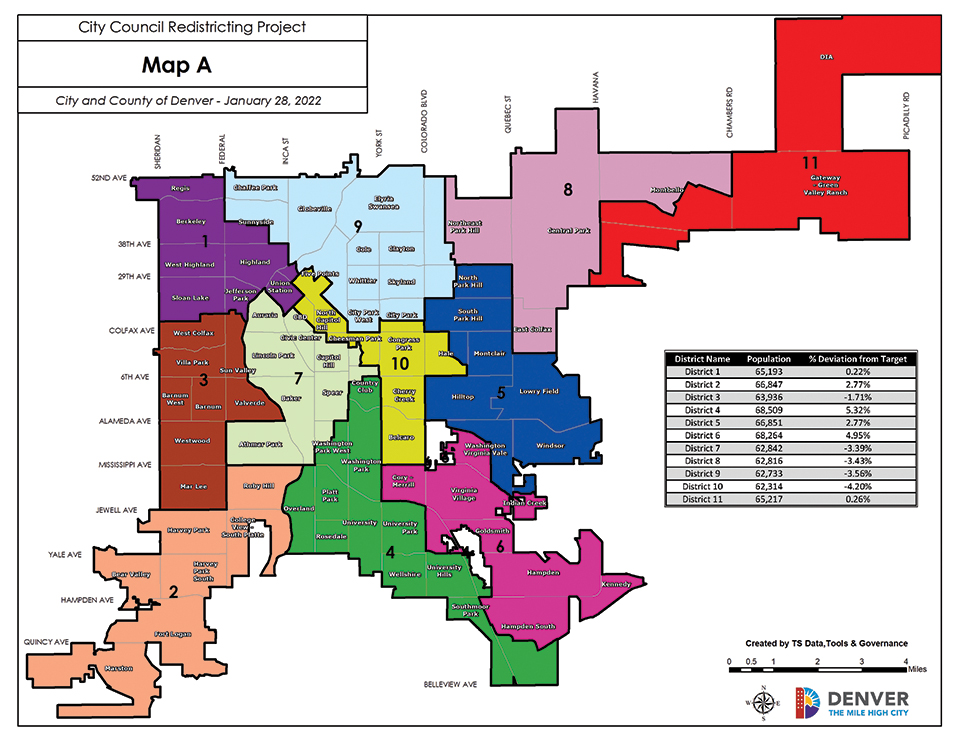
Drivers in Denver will have to slow down on neighborhood streets. Back in December, Denver City Council voted 11-1 to reduce the speed limit by 5 mph on residential streets to 20 mph. The new law was passed in an effort to make streets safer and more livable. Denver saw 73 traffic deaths in 2021, the most since the city started their Vision Zero program in 2013, or goal of zero traffic deaths. Eleven of those 73 deaths occured on North Denver streets.
The new law will only apply to residential streets mostly lined with homes, or all of the streets in Denver that are not striped with lane lines. The new speed limit does not apply to neighborhood collector streets like 32nd Avenue, or arterial streets like Federal Boulevard, which has historically been the most dangerous and deadly street in North Denver, especially for pedestrians.
The Denver Streets Partnership, a local nonprofit, led the “20 is Plenty” campaign that helped bring about the new law. Last year, orange “20 is Plenty” yard signs created by the group could be seen in front yards around the city. In campaign literature the group cited “the faster a car is moving, the less time the driver has to see a pedestrian and slow down or stop and the higher the injury risk for the pedestrian.” The likelihood of a fatality or severe injury when a pedestrian is struck by a driver at 20 mph is only 13%. At vehicle speeds of 30 mph, that likelihood of severe injury or death for the pedestrian goes up to 40%. The lower speed limit also leads to environmental and air quality benefits, as vehicles have less emissions when traveling at lower speeds.
Northwest Denver’s City Councilwoman for Council District One, Amanda P. Sandoval, voted yes on the new law. “Speeding on our streets has been a concern for as long as I have been working for the city, almost 10 years.” Sandoval noted that with more people working from home in the last two years during the pandemic, her office has fielded an increasing number of complaints from people noticing speeding in the neighborhoods. In her polling as part of her outreach to the community, she noted about 80% of residents supported the lowering of the speed limit. Sandoval noted that “we have overwhelmingly heard the need to have our side streets have slower speeds.” She was in favor of this since so many schools and parks are located on neighborhood streets, and lower speeds create a safer environment for children as well as pedestrians and people on bikes. The one concern she had with the ordinance is she “hopes it doesn’t lead to the unintended consequence of having more Black and Brown people stopped and targeted because of speeding. Because data does show that in neighborhoods with higher populations of minorities that there is higher police contact.” Sandoval did connect with Denver Police, and asked that they “implement this policy across the board in a fair manner.”
Communications Manager Nancy Kuhn, from the Denver Department of Transportation and Infrastructure (DOTI), said that the department responsible for Denver streets was supportive of the new law. “We hope reducing the speed limit on our local streets will address resident concerns. We also think the initiative could draw attention to the topic of speed in general—get people thinking about it and about driving the speed limit. While we know most fatal and serious injury crashes are happening on our multi-lane arterial streets as opposed to the local streets, we think this is a good first step. And we’re looking to follow up with another planning effort that would analyze speeds on our collectors and arterials.”
Most residential streets do not have speed limit signs on them, but the new speed limit applies since it is the new default speed limit for Denver. DOTI has plans to either replace or remove the 2,700-3,500 25 mph signs on residential streets that are already installed throughout Denver. The department said they are trying to be thoughtful about which 25 mph signs to remove, which to replace, and where to put up new signs to make travelers coming from other cities aware of the new speed limit while staying within budget. Kuhn said that DOTI estimates it will take about three to five years to make updates to all of the signs.
Questions have arisen from community members if simply changing the speed limit will make a difference in regards to safety. Research from the city of Boston, which had a similar speed limit reduction, did show drivers going more slowly, and lower speed limits especially slowed down the drivers that were speeding excessively.
Allen Cowgill is on the Advisory Board to the Denver Department of Transportation and Infrastructure, appointed to represent City Council District One.



Be the first to comment